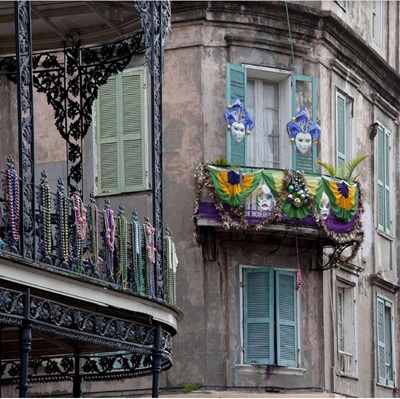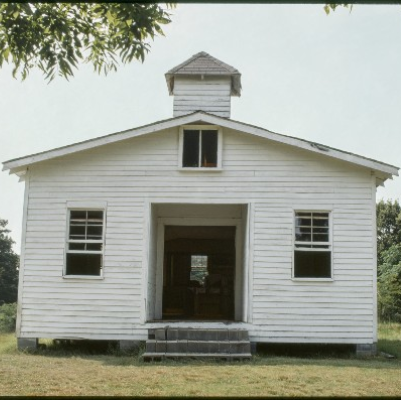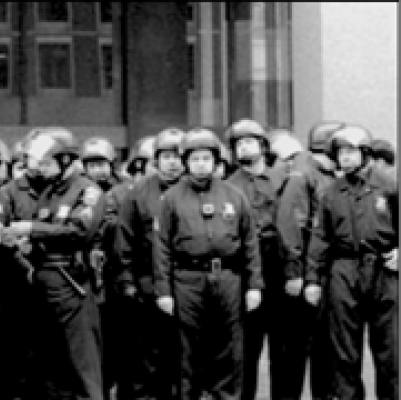.
.
“A Price Too High,” a story by Russell Waterman, was a finalist in our recently concluded 51st Short Fiction Contest. It is published with the permission of the author.
.
.
Image by Juraj Varga from Pixabay

.
.
A Price Too High
By Russell Waterman
.
___
.
…..Robert Shines lifted his sweat stained fedora just enough to wipe his brow. Stuffing his handkerchief back into his breast pocket he repositioned his hat at a slight angle, rakish style, just enough for a breeze to cool his skin, should one happen by. As luck would have it the Mississippi air was stagnant and sticky this August evening.
…..There was a bounce in his step as he passed the sign welcoming him to the 1932 Delta Blues Festival: Home of the Greatest Bluesmen!
…..Robert wore his pin-striped wool suit and tie, and polished his boots up special. He attended all three nights, but wanted to look his best on the last night of the festival.
…..This night taking an alternate route to avoid the crowds, he walked along the oak lined paths of City Park toward the music, led on only by the sounds of the delta blues.
…..Entering an oval shaped courtyard lined with thoughtfully placed oaks and chestnuts, he retired to a bench surrounded by tall grass on the far side. Tipping his hat to a young lady, he received a smile in return, “Ma’am,” said Robert. In no rush and with the stage still a fair trek away, he thought it was best to rest his old bones.
…..Placing his fedora beside him he soaked up more perspiration: it was indeed a steamy night. A few folks had the same thought in taking this slightly longer walk to avoid the mass of festival goers. Robert greeted some and struck up brief conversations with others. All the while he listened to the sounds of cicadas and crickets echoing the blues beat in the distance, with his head bobbing and his feet keeping time.
…..A large object leaning against a nearby tree caught his eye. It looked like a guitar case half covered in the tall grass. Yes, but how did it get there? Was it left by mistake, neglect, or otherwise? It wasn’t strange to see guitars at a blues festival, just not in this condition. No self respecting guitarist would do such a thing.
…..Old and weathered, he laid it down in the grass and gently released the latches, taking care not to break the brittle hinges. His mouth dropped at seeing the Kalamazoo. Robert had only seen one in a picture once being played by his hero, Robert Johnson. The markings indicated it was a ladder braced KG14. His eyes nearly popped out of his head. Cradling it like a newborn and returning to the bench, he gushed over the spruce flattop and the headstock that tapered to a point.
…..Curiously the strings appeared in good shape. They didn’t feel stiff or look rusted, just slightly out of tune which he quickly remedied. Striking an E chord sounded pitch perfect. He grinned. Folks didn’t take much notice when he plucked a few notes of Kindhearted Woman Blues: after all, this was a blues festival.
…..“You’re not bad old man. Why don’t ya follow us and come see some real bluesmen?” said a passerby.
…..“Yeah, I ain’t playing half bad am I?” said Robert, smiling at his new found talent.
…..The string action was low making it easy to finger notes and chords. More than one person stopped and stared, amazed at Robert’s ability to move up and down the fret board. Soon, he was seamlessly playing alternate bass lines with his thumb while fingering the melody on the high strings. He changed tunings to play Hell Hound on My Trail, and retuned with ease. The more Robert played the better he became.
…..Before long a small crowd gathered. They whooped and hollered when Robert hit the last note to They’re Red Hot. They applauded and with a smile as wide as the moon he tipped his hat in gratitude.
…..Looking the Kalamazoo over, Robert said, “Don’t know how I did that. Guessin’ I was possessed by the spirit of the blues.” He flexed his hands, feeling a funny tingling sensation in his fingers, like the pins and needles you feel when they fall asleep.
…..He began rubbing his fingers thinking he over did it, trying to wake them up. He couldn’t remember ever playing like that before.
…..The impromptu audience left and continued on toward the show, with several chatting about Robert’s gift. Still trying to rid his fingers of the tingling sensation, and wanting to see the show himself, Robert returned the guitar.
…..Sliding the guitar back into its case he noticed a crumpled paper previously hidden by the guitar. Thinking it might identify the owner, he read it. His smile disappeared. Finding the message unsettling, his mouth hung open as he read it again, this time weighing the meaning of each word.
…..Hmm, I don’t like the sounds of this, thought Robert. This must be some kind of sick joke.
…..Shaken, he folded up the note how it was before, lining up each crease and putting it back exactly where he found it, then placing the case up against the tree. Robert formed the grass around the case and inspected the area. Looks good, he thought. He wasn’t sure how real the note was, but he was sure of one thing: he wanted to get as far away from it as possible.
…..He picked up his fedora and followed others making his way out of the courtyard. As he walked he looked back toward the guitar case, not knowing what to expect.
…..Moments after he left the courtyard walking on another pathway, he stopped and waited, staring back. Ignoring people passing him by, he stood sweating, but not because of the humidity. His night enjoying the blues had turned into a night fearing for his life.
…..Sensing nothing had changed, Robert drew a deep breath. He rejoined in the walk toward the stage. Then the transformation started.
…..With each step his pace slowed and his back grew hunched. His chest began to ache, as did his body. He could feel a blistering, searing pain move up his legs. He felt on fire. To find relief he sat on a patch of grass, resting his arms on his knees. He noticed how thin his fingers had become, and how weak and frail he felt.
…..This is what it must be like to get old, and dying? Then what the note warned is coming true. There’s no other explanation, Robert thought.
…..With precious little time, Robert asked a passerby for help getting to his feet. The young man lifted Robert, being careful as you would with any old man, and fashioned a cane out of a long stick.
…..“Thanks very much,” said Robert, now grey haired, his face a wrinkled mess. His one thought was to return to the courtyard, and the guitar, before it was too late.
…..Robert trudged along finally entering the courtyard. He eyed the guitar case. Increasingly weak, Robert made a move toward the oak and collapsed at the base of the tree. A couple who saw him fall assumed he’d had too much blues, and booze. Robert propped himself against the tree, wheezing for air.
…..He opened the clasps and grabbed the neck with his right hand. The guitar fell into his lap. Gathering strength he positioned his hands and sluggishly plucked a few notes of Kindhearted Woman Blues. Multiple times he stopped to breathe and rest his stiff fingers before trying again.
…..At first he played without passion or mastery, unable to regain what once he thought was his. Determined to get back his youth, he continued to work the Kalamazoo’s frets and strings. As he played bar after bar, verse after verse, he began to play upbeat, and in tempo. His eyes lit up: life was returning.
…..When the tune was finished, Robert once again felt the strange tingling in his fingers: which were no longer bone thin. His body no longer ached and he could stand without trial. He was young again.
…..Robert retrieved the note and analyzed each word, desperate to save his life. “Well, Robert, looks like you’re at your own crossroads,” he said. “All things considered, the price to play this good is just too high. And I know only one way to get out of this deal with the Devil.”
…..Robert tilted his fedora back and launched into Cross Road Blues with all the soul and skill his fingers could summon: courtesy of this devilish guitar. Playing from the heart he began singing the words for the first time. They poured out of him, but somehow he knew it was wrong. The song’s spirit was meant for only one person, and it wasn’t Robert Shines.
…..A couple stopped and listened to Robert play, thinking he must have made a deal with the devil, no one could play that good. “How ‘bout you try?” said Robert, offering up the guitar. “I promise you’ll be great.”
…..“No way can I play like that, man. Fact is I ain’t never heard nobody play like that before.” said the man, taking his girl’s hand before moving on.
…..Later, foot traffic picked up with the blues show winding down. Robert spoke to anyone remotely interested in watching him play. But none would touch the guitar. There must be someone willing to try, thought Robert.
…..With stragglers thinning, when another man watched in awe, Robert took advantage.
…..“I noticed you watching me play, young man. You know the name of that tune? It’s called Cross Road Blues. Only the best can finger that one. And I bet you could be the best, given you have the right guitar.”
…..Robert saw the man drooling over the Kalamazoo and laid it on thick.
…..“Beautiful, ain’t she? Guitar has a real nice sound too, don’t it?” said Robert, striking a chord and grinning up a storm. He motioned for the boy to come closer. This might be his last chance tonight, so he had to make the most of it. “It’s a classic you know? Here,” said Robert, gesturing the boy to sit next to him on the bench.
…..Extending his hand, Robert said, “I’m Robert, and you?”
…..“Name’s, Harry.”
…..“Glad to know ya, Harry. You play don’t ya? I can tell by them calluses. You been playin long? I bet you’re pretty good.”
…..“A couple years now. I ain’t as good as you, but I been tryin’,” said Harry, excited by the possibility and the compliment.
…..“Now don’t short yourself. I bet you’re really good. And with this Kalamazoo I guarantee you’ll be even better before you know it. Take hold and try her out. She’s really sweet, easy action too. I call her Cora,” said Robert, making up a story. It was time to throw the hook, the line and the sinker.
…..Harry eagerly positioned the guitar and strummed a couple basic chords: getting used to the action and feel. After a little flat pickin’, he said, “that does sound nice, mister.”
…..Harry was a novice, but Robert saw Harry’s face light up once he started to play. Plus he was young and pliable.
…..“Call me, Robert,” he said, praising him with a gentle slap on the back. “Yeah, you know how to play. You’re pretty good too. You know any delta blues tunes? I bet when you start ‘er up on ole Cora that it’ll never sound finer,” said Robert.
…..“How ‘bout When You Got A Good Friend? I learned it ‘cause of the festival,” said Harry.
…..“Great! Let’s hear it,” pushed Robert.
…..Harry started off slow, not quite in time, but the notes rang true. After the second verse, Harry was up to speed and getting better. It’s working, thought Robert.
…..“You got it, you got it. Now let’s hear a little solo, from deep down in your belly,” said Robert, watching as Harry’s confidence grew. The last few festival goers hung out as Harry improvised and finished the song with another blistering free form, much to his own surprise.
…..Robert howled and clapped, encouraging the onlookers to do the same. Harry couldn’t smile any bigger.
…..“My fingers are tingling. I think my whole body is! I never played that good in my entire life!” said Harry, shaking his hands.
…..“You did it, Harry. I knew you could. And I’m proud of you. So proud you know what I’m goin’ do? I’m goin’ give Cora to you.”
…..“I can’t take your guitar,” said Harry, secretly thinking the opposite.
…..“I’ve had her for years. I’ve been thinking it’s time I pass her on to someone just like you. You got a gift, son, and I can’t let you waste it. And with Cora, you’ll only get better.”
…..Robert could see the finish line. Harry began another tune, already playing with prowess, as Robert stood and took a few steps toward the pathway as he spoke. He couldn’t give Harry time to think. “Come this time next year, I bet you’ll be headlining this festival. And I’ll be sittin’ right there in the front row watchin’!”
…..Nearing the courtyard exit and gambling on the note’s final test, Robert said, “One last thing, there’s a note tucked away inside that guitar case you should read when you get a chance. No hurry.”
…..“What’s the note say?” yelled Harry.
…..“Everything has a price, son.”
…..Robert left the courtyard and stopped where he had earlier, waiting for a swift death, or if what the note said was true: freedom. He heard Harry riffing in the distance, basking in his new found glory.
…..Robert remained in the same spot outside the courtyard for some time. Coming to realize he didn’t need a bedeviled guitar to be blessed.
…..Harry was no longer playing. Robert heard only a faint whimper. Or was it the sounds of the blues?
…..The heavy air was thick with the sound of cicadas and crickets. Robert lifted his sweat stained fedora just enough to wipe his brow, and smiled as he walked home.
.
.
___
.
.

Russell Waterman is an Amazon published author, has won accolades from SIA for his murder mystery .Murder in the Morgue,. and is the consummate short story writer with a soon to be published compilation of short stories.
.
.
.











































